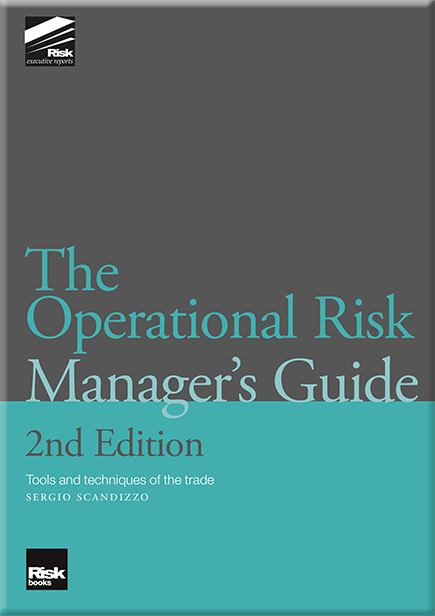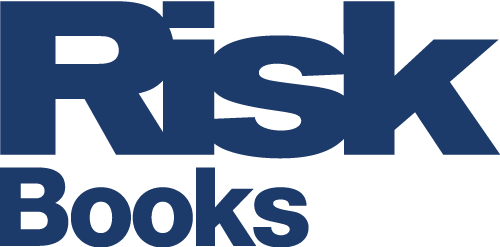The Operational Risk Manager's Guide (2nd Edition)
The Operational Risk Manager's Guide (2nd Edition)
Sergio Scandizzo
Couldn't load pickup availability
Sergio Scandizzo has updated and expanded The Operational Risk Manager’s Guide in light of the 2007-9 crisis. The credit losses incurred have been exposed as primarily governance and operationally driven. In other words, credit losses were caused by failures in the governance of risk or in risk management operational standards. Increasingly as they recognize this banks and supervisors are looking to strengthen the risk management process.
With the need to pay close attention to the oversight of risk management and to risks like liquidity, reputation, governance and extreme scenarios (fat tails), there is a need for operational risk managers to step up to the mark. Operational risk managers have the natural firm-wide outlook necessary to bring these risks into their remit. The updates to The Operational Risk Manager’s Guide delivers practical information on how the operational risk manager’s role has expanded since the 2007-9 crisis and how to manage these new responsibilities.
The Operational Risk Manager’s Guide, Second Edition leads you step-by-step through the key practices and responsibilities of being an operational risk manager. As the reader you are presented with a set of typical scenarios and shown how to manage these pressing demands and take strategic decisions. Written in an authoritative and engaging style Scandizzo covers the challenges and issues commonly faced by op risk professionals, such as measurement and reporting, policy, infrastructure, developing relationships with other groups within the bank, recruitment, training, control and mitigation of operational risk.
This new Executive Report builds on the coverage of the best-selling first edition, with expanded coverage and additional chapters that address:
* The impact of the crisis and the limitations of existing tools and techniques
* The increased importance of scenario analysis and stress testing
* The key role of operational risk in ensuring the integrity of the risk management process
* The importance of the new product approval process
* The pivotal role of the AMA approach
Written exclusively from the perspective of an operational risk manager, the focus of this Executive Report is always on describing practical ways to get the job done, backed up with real-life examples of everything that is discussed. It provides you with a solid understanding of the tools and techniques of identifying, managing, reporting and monitoring operational risk.
The Executive Report looks at current developments affecting the role of the op risk manager including new regulatory recommendations, validation of risk models, risk management oversight, capital measurement and allocation, and concluding with an assessment of how the op risk manager’s role is likely to evolve over the next 10 years.
This concise, practical Executive Report talks to practitioners in their own language with plenty of identifiable examples of day-to-day scenarios. This is essential reading not only for operational risk managers and analysts but also management consultants, internal and external auditors and compliance officers looking to move into this area or needing to learn more about the operational risk manager’s role.
Share

More information
About the Author
Table of contents
Foreword
Anthony Peccia
Citibank Canada
INTRODUCTION TO THE SECOND EDITION: THE MANAGEMENT OF RISK MANAGEMENT
The limits of risk governance
The difference between Prozac and Credit Default Swaps
The role of risk management
The failures of risk management
PROLOGUE: THE JOB INTERVIEW
PART I. THE JOB DESCRIPTION
1.A DAY IN THE LIFE
Key Risk Indicators
Meeting with Internal Audit
Briefing the CRO
Videoconference
Message from the supervisors
Study on third-party liability
Presentation
New product approval
2.THE OPERATIONAL RISK FUNCTION
Do I have to manage anything?
A place in the sun
Are you “adding value”?
Why manage operational risk?
Nobody expects the Spanish Inquisition
PART II. TOOLS OF THE TRADE: LIFE UNDER BASEL II
3.RISK MANAGEMENT FOR BEGINNERS: THE OPERATIONAL RISK POLICY
Definitions
Risk appetite
Roles and responsibilities
The operational risk management framework
4.RISK IDENTIFICATION
Objectives of risk identification
A methodology for risk identification and mapping
Case studies
Conclusions
5.RISK ASSESSMENT
Measurement and capital allocation
The Basel II approaches to operational risk measurement
The advanced measurement approaches
6.A MANUAL FOR SCENARIO ANALYSIS
The logic of Elfland
A story about what happened in the future
Scenario assessment
Ten suggestions for scenario building
Structure of a scenario database
Some examples
7.AMA: AN ADVANCED APPROACH TO RISK MEASUREMENT
Introduction
The lessons of Lehman Brothers
The mystery of risk measurement
AMA in action
A practical example
8.RISK MONITORING AND REPORTING
Reporting operational events and losses
Reporting results of self-assessment
Reporting Key Risk Indicators: the Operational Risk Scorecard
Reporting for top management
9.THE NEW PRODUCT APPROVAL PROCESS
Principles
Managing the product
Managing risks
Managing innovation and complexity
Sample New Product Approval Policy and Procedure
Troubleshooting: KRIs for the New Product Approval Process
Case study
PART III. SPECIAL TOPICS IN CALAMITY PHYSICS
10.THE MANAGEMENT OF EXTREME RISKS
The meaning of strategy
Risk definitions
High-severity events
Scenario analysis for extreme events
11.FINANCIAL AND OTHER DISASTERS
Three case studies
Thinking the unthinkable
EPILOGUE. OPERATIONAL RISK MANAGEMENT IN THE YEAR 2020

